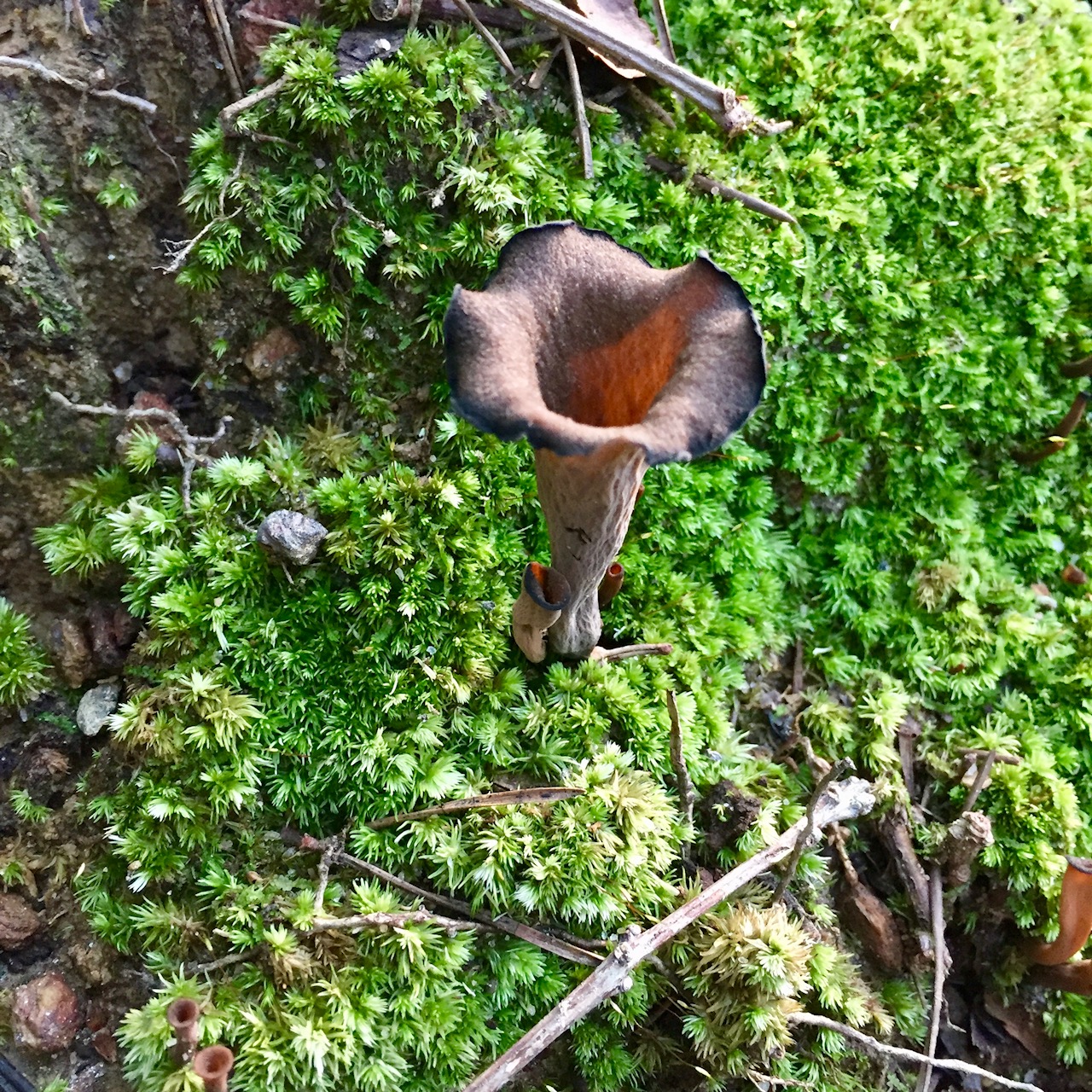Polk County’s Most Wanted – Black Trumpet
Have you seen Black Trumpets?
In a joint effort to expand the knowledge and understanding of the flora and fauna of Polk County, Conserving Carolina and botanist David Campbell need your help in locating this month’s “Polk County’s Most Wanted—Fungi,” one of our most cryptic (and edible!) species of fungi, Black Trumpet Mushroom (Craterellus fallax).
Occurring throughout our region, Black Trumpets are indeed aptly named, as the accompanying photo attests: dark in coloration with a tube-like appearance that is very reminiscent of a trumpet. The ‘trumpets’ are usually from one to two and a half inches in length with a grayish-black coloration. The spore print is yellowish to orange. Some people have likened the scent of Black Trumpets as being ‘fruity’ or ‘earthy.’
Black Trumpets are not rare mushrooms, but it is difficult to spot these mushrooms against a backdrop of dead leaves on the forest floor. The best way to spot this mushroom species is to scan the ground in appropriate habitats and look for the ‘hole’ of the funnel from above. As for habitat, Black Trumpet prefers growing under Oak and Beech trees, often (although certainly not always) in a carpet of moss. Many species of fungi will only grow in strict association with various tree species, due to a mutualistic symbiotic relationship between the plant and the fungus; the fungus provides the plant with various nutrients and the plant, in turn, gives the fungus carbohydrates. These plant-fungus interactions are critical to the functioning of many terrestrial ecosystems.
Black Trumpets are considered one of the choicest species of edible mushrooms and they are greatly coveted by mushroom hunters with culinary interests. As always, however, one must NEVER eat any species of mushroom where identification is even remotely uncertain. As well, some persons have unique reactions even to edible species of mushrooms, so one must exercise caution. Black Trumpets are known to occur in Polk County, with peak fruiting times from mid-August to early October. Look for it in moist to semi-dry forests under various species of Oak and Beech, if you are lucky you may find a patch of these elusive denizens of our woodlands.
If you think that you have seen Black Trumpet mushrooms in Polk County, please send photos, questions, or comments to Pam Torlina at Conserving Carolina by phone at (828)697-5777, ext. 300 or email, [email protected], so we can document its occurrence in Polk County.
See more information about “Polk County’s Most Wanted” and download and print a “Pocket Guide” with all of the “Most Wanted” plants, animals, and habitats that you can be on the lookout for when you’re out in the field!
